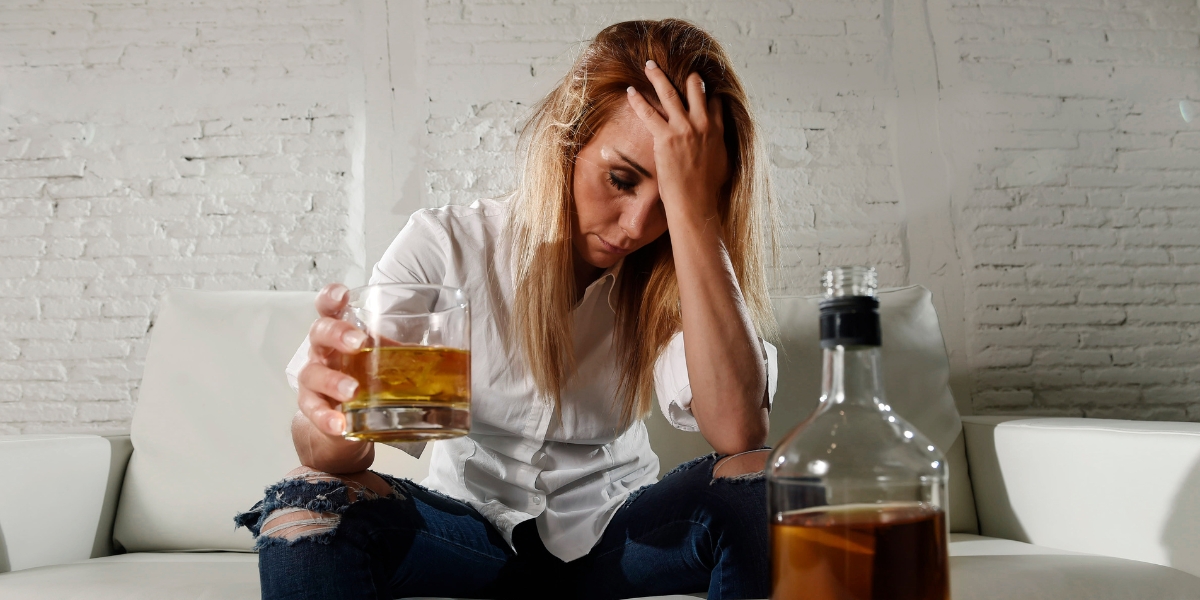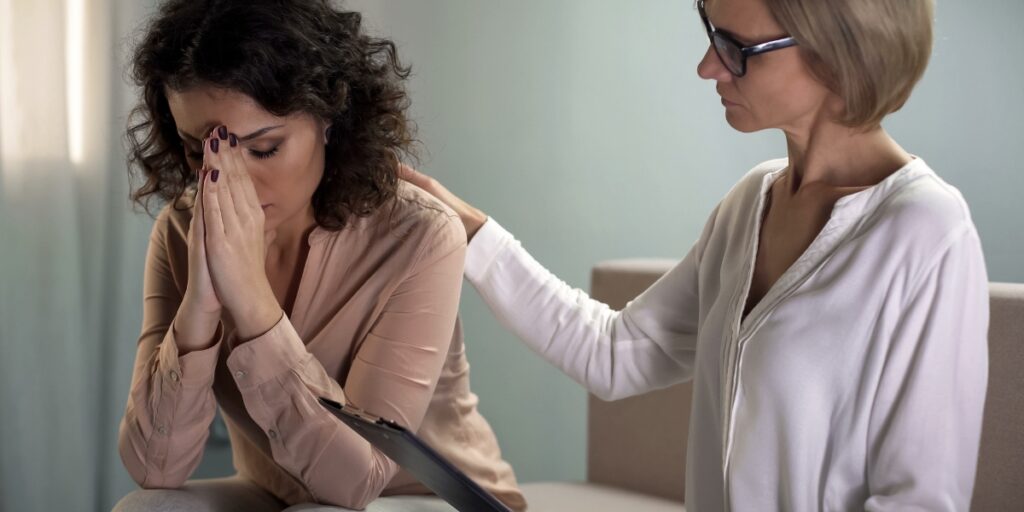What Is a Relapse?

It’s known as a relapse when someone in recovery gives in to their cravings and begins using again. But it’s important to understand that a relapse does not occur suddenly.
According to the National Institute on Drug Abuse (NIDA), addiction is a chronic illness that can cause the mind to respond in another way to stress, reward, and self-control. The good news is that coping mechanisms assist you in ending your addiction and discovering important people who will help you along your recovery.
Recovery from substance abuse takes a lot of hard work and dedication, even after completing a treatment program. Adjusting to life after treatment may be challenging because it may feel easy to relapse and fall back into substance abuse initially.
Staying on the road to recovery isn’t easy, but overcoming obstacles helps you in your journey. Understanding the probabilities of relapse and making plans for risk management in healing can reduce the chances of relapse and increase the duration of your recovery.
What Is a Relapse?
In the case of addiction and recovery, relapse refers to a return to periods of irregular or excessive use in the form of drugs or alcohol.
Relapses are more common than most people think and occur slowly over time. It is essential to understand that relapse does now not suggest failure or the end to recovery. Instead, it could be an opportunity to learn from the experience, renew their dedication to suitable coping strategies, and apply skills learned in therapy.
Some people who don’t know much about recovery mistakenly believe that relapse occurs suddenly and that recovery has stopped entirely. This misunderstanding can lead to shame and judgment that people in recovery may already face.
It is crucial to educate friends and family about the true nature of relapse so that they can provide understanding and support. A caring social network is essential to preventing relapse, and individuals are encouraged to seek help when needed.
How Common Is Relapse?
40-60% of individuals who overcome substance use disorders will experience relapse. However, it is crucial to understand that while recidivism is common, it is not a certainty. Experts emphasize the importance of prompt response and a comprehensive relapse prevention program.
Addiction experts advise that it should not be ignored or accepted as a regular part of recovery. Staying motivated and learning from the experience is essential to staying focused. By returning to supportive behaviors and coping strategies, individuals can actively try to prevent future relapses.
Signs of A Relapse
Even though it happens internally first, relapses can show signs suggesting a higher chance of occurring. These signs can help identify a possible relapse:
- Mood swings – Noticeable emotional changes, like becoming more easily irritated, anxious, or sad.
- Talking nostalgically about past drug use – Having conversations that romanticize or express fondness for previous experiences with drugs or alcohol.
- Being secretive – Acting in a way that hides activities or avoids discussing one’s whereabouts.
- Spending time with people who still use – Hanging out with individuals who continue to engage in substance use, possibly seeking their company.
- Going to places associated with drug use – Actively seeking out or frequently visiting locations linked to drug or alcohol use in the past.
- Not attending support groups – Neglecting to participate in support groups, therapy sessions, or other ongoing assistance after treatment.
- Neglecting physical and mental health – Not taking care of oneself physically, ignoring therapy or medication schedules, or disregarding mental health needs.
- Becoming isolated – Withdrawing from social interactions and reducing involvement with friends, family, and support networks.
Recognizing these signs can be crucial in preventing or addressing a potential relapse. Individuals in recovery and their support system must stay alert and take proactive steps to provide timely help and support when these signs appear.

The Stages of Relapse
Relapse happens gradually and can be divided into three distinct stages:
1. Emotional
2. Mental
3. Physical
Emotional Relapse
During the emotional relapse stage, individuals may not be actively thinking about using substances, but their emotions and behaviors lay the foundation for a potential relapse in the future.
Signs of emotional relapse include:
- Keeping emotions bottled up
- Isolating oneself
- Neglecting self-care
- Experiencing frequent mood swings
Identifying and addressing these emotional warning signs at an early stage is crucial.
Mental Relapse
In the mental relapse stage, the internal conflict between the desire to use substances and the commitment to recovery strengthens— conflicting thoughts about using or abstaining from drugs or alcohol arise.
People in this stage may find themselves reminiscing about past substance use, daydreaming about using again, or reconnecting with old friends who use drugs. The battle within their mind becomes more noticeable, and the risk of relapse grows. Developing coping strategies to deal with cravings and engaging in healthy distractions is vital during this stage.
Physical Relapse
The final stage of relapse involves using substances. If individuals reach this stage, they likely have gone through a progression of emotional and mental relapse that led to resuming substance abuse. It’s important to recognize and address the early signs of emotional and mental relapse to prevent physical relapse, seek support, and use relapse prevention strategies.
Identifying the stages of relapse as early as possible significantly increases the chances of preventing a full relapse. By becoming familiar with the warning signs and developing effective coping mechanisms, individuals can intervene at each stage, break the downward spiral, and maintain their recovery journey.
Types of Relapse
In various recovery models, three types of relapses are acknowledged: slip, lapse, and relapse.
Slip
A slip refers to a brief and unintentional return to using substances. It usually involves a single use or a short episode of unplanned substance use that is not part of a larger pattern. After a slip, individuals often regain control quickly and reaffirm their commitment to recovery.
Lapse
A lapse entails a longer or more intentional period of substance use. Unlike a slip, a lapse involves conscious decision-making and may involve a temporary loss of control. After a lapse, individuals may experience various emotions, such as guilt or disappointment, but they still have the opportunity to recommit themselves to their recovery goals.
Relapse
Relapse refers to a complete return to regular or heavy substance abuse after a period of not using. It involves going back to addictive behaviors and experiencing a significant setback in one’s journey of recovery. Overcoming a relapse can be challenging and may require additional support and intervention to regain stability in recovery.
Understanding these distinctions helps individuals and their support systems respond appropriately and offer the necessary help at each stage. It’s crucial to view slips and lapses as opportunities for learning and personal growth rather than as failures. Individuals can continue progressing toward recovery by addressing the underlying factors that contribute to slips or lapses and reinforcing relapse prevention strategies.

Relapse Prevention Therapy at Northridge Addiction Treatment Center
Experiencing a relapse does not mean failure. It is not uncommon for individuals to relapse despite years of rehabilitation.
A relapse can occur when people begin to believe they have overcome their addiction and slowly withdraw from the positive coping skills that helped them recover. Regardless of where a person is on their recovery journey, it is possible to re-engage in recovery, and Northridge Addiction Treatment Center is here to help.
At Northridge Addiction Treatment Center, we use evidence-based treatment with patient-focused care and empower each resident to develop the skills necessary to face future challenges in recovery. We provide relapse prevention therapy focused on teaching healthy and effective coping strategies and techniques. Our comprehensive family therapy program aims to improve intimacy and build strong support networks.
Our caring treatment specialists are eager to help you find substance use disorder treatment tailored to your needs. Reach out now.
Find Meaningful Recovery
Our caring and compassionate specialists are eager to help you comfortably navigate this journey to recovery. Our individualized treatment plan, programs, and therapies may be a perfect match for you or your loved one. Let us assist you in living the happy life you deserve. It starts with a phone call.




